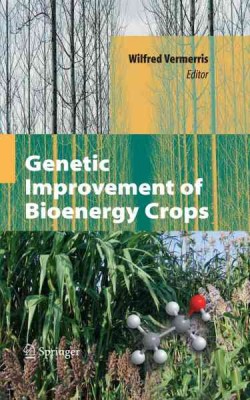| Genetic Improvement of Bioenergy Crops Contributor(s): Vermerris, Wilfred (Editor) |
|
 |
ISBN: 1441924221 ISBN-13: 9781441924223 Publisher: Springer OUR PRICE: $161.49 Product Type: Paperback - Other Formats Published: October 2010 |
| Additional Information |
| BISAC Categories: - Computers | Computer Simulation - Computers | Computer Graphics - Science | System Theory |
| Dewey: 003.366 |
| Physical Information: 0.95" H x 6.14" W x 9.21" (1.44 lbs) 450 pages |
| Descriptions, Reviews, Etc. |
| Publisher Description: Ethanol as an alternative fuel is receiving a lot of attention because it addresses concerns related to dwindling oil supplies, energy independence, and climate change. The majority of the ethanol in the US is produced from corn starch. With the US Department of Energy's target that 30% of the fuel in the US is produced from renewable resources by 2030, the anticipated demand for corn starch will quickly exceed the current production of corn. This, plus the concern that less grain will become available for food and feed purposes, necessitates the use of other feedstocks for the production of ethanol. For the very same reasons, there is increasing research activity and growing interest in many other biomass crops. Genetic Improvement of Bio-Energy Crops focuses on the production of ethanol from lignocellulosic biomass, which includes corn stover, biomass from dedicated annual and perennial energy crops, and trees as well as a number of important biomass crops. The biomass is typically pretreated through thermochemical processing to make it more amenable to hydrolysis with cellulolytic enzymes. The enzymatic hydrolysis yields monomeric sugars that can be fermented to ethanol by micro-organisms. While much emphasis has been placed on the optimization of thermo-chemical pretreatment processes, production of more efficient hydrolytic enzymes, and the development of robust microbial strains, relatively little effort has been dedicated to the improvement of the biomass itself. |